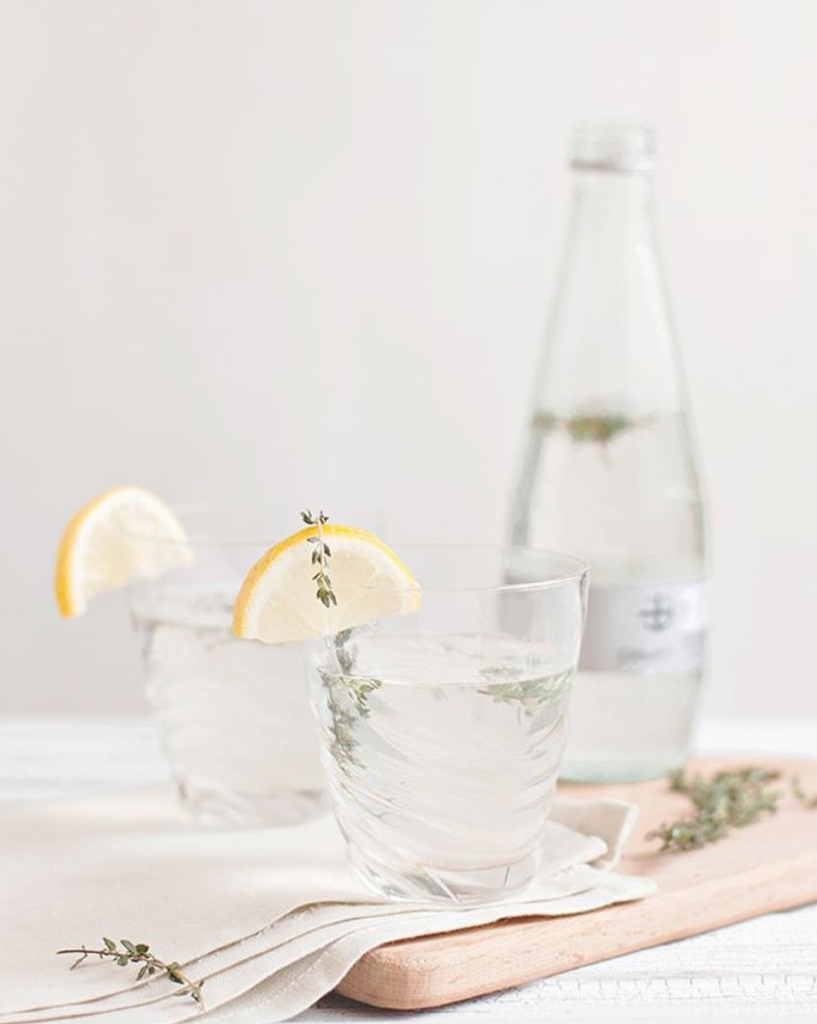
DIETING
Health-conscious people often restrict the amount of fats in their diet. This can result in a deficiency of fatty acids. These fats are called essential fatty acids because they are essential to the proper functioning of the body. For example, the liver needs these fats to breakdown cholesterol and other harmful fats, as well as to perform detoxifications of toxic substances in general. The liver needs fatty acids for the body’s hormones like D3, neuro chemicals, and a proper functioning immune system. For those who have a deficiency of fatty acids, the late Dr. Louis Marx recommended this remedy:
Spectrum Oils: 1 1/2 parts avocado oil; 1 part safflower oil; and 1 part almond oil
Take a teaspoon a day of this blend internally. However, do not use commercial oils; only use cold-pressed or expelled oils. This can also be applied topically to skin and hair.
Taking your diet seriously is a way to stay healthy, save money and slow the aging process. A good diet consists of a variety of whole grains, vegetables and fruits. If you choose to use dairy products, goat’s milk, soured or cultured milk (yogurt) products are preferable to cow’s milk. Also, butter is much better than margarine. Margarine, vegetable shortening and other hydrogenated fats are the most damaging fats available. And a diet high in meat has many hazards that can only contribute to the early degeneration of your body. We need balance.
FLU + COLD VIRUSES
Flu viruses are generally considered due to viral infections and colds are more likely to come from bacterial infections—even some fungal infections can present flu or cold symptoms. Poor and aggressive cleansing can open you to infections. I recommend cleansing oils, milks and gentle, seaweed-based gels in the winter. The skin’s surface normally has an acid mantle—a very fine, slightly acidic film which helps protect the person from invading pathogens. However, the widespread use of soap, which is alkaline, damages this acid mantle, leaving you open to infections.
SKIN
The outermost layer of the epidermis (the stratum corneum) contains the extracellular matrix, a lipid-rich environment that creates interferon gamma, which generates an anti-viral state. Healthy stratum corneum resists abrasion, restricts water loss and prevents entry of pathogens. So many anti-aging products simply do not work. They pollute the body and skin with free radicals and synthetic chemicals that your body cannot process, which leads to the breakdown of tissue.
Over-exfoliating is the most common way to damage your stratum corneum, which causes aging and can lead to illness, especially for sensitive skin types—not to mention opening your skin to taking in UV damage, breaking capillaries and disrupting your ability to assimilate Vitamin D3 (which is really a hormone). Humidity, temperature, wind and sunlight at extreme exposures can also make you susceptible to illness in winter. The evaporative demands of the atmosphere require professional evaluations if the skin’s barrier functionality is diminished. Here are some ways to protect your skin and prevent normal rates of transepidermal water loss (TEWL):
Layering skincare like layering clothing helps. Do it in this order: hyaluronic acid serums; moisturizers with omegas or Tensage Advanced moisturizer; ceramides or Biopelle Tensage 40 ampoules combinations of organic skin formulations containing oils; occlusive barriers like Dimethicone and shea butter for cracked skin; and mineral-based sun protection. Let dry before layering fabric.
Don’t forget your accessories—sunglasses; soft fabrics of silk and cotton for sensitive/allergy-prone skin; socks, hats, gloves and scarves to protect your eyes, ears, face, fingers and feet.

HYDRATION
Remember that humidity is necessary for humans and pets, so skin and lungs need to be well hydrated to respirate properly. The drier the air, the more moisture gets sucked out of your skin leading to itchy, dry skin, eyes, lips and—for some—immune system disorders like asthma, psoriasis and eczema. Be sure to take control of the moisture in your environment at home, work and in the car.
Mist fresh, filtered water, not chemically altered waters like micellar water, and use UV humidified filtered water. Dehydration is lacking water. Dry is lacking oil. Consider having both dry and dehydrated skin—you’ll need oils, sebum (which is imperative in micro biome control) and lipids just to hold onto water.
Use moderation and common sense to achieve equilibrium and homeostasis. You may get dry eyes from car heaters or other elements—beware of misleading and damaging eye RX with preservatives. Peter Michalos, MD, recommends Refresh preservative-free eye drops. And we all know how bad some preservatives are for us. A major cause of eye swelling is drinking wine with preservatives. I love organic wine options—they are much more sophisticated these days and won’t give you a hangover (unless you overdo it, which only leads to more dehydration).
OMEGAS + VITAMINS
Omegas are essential for your Vitamin D3 assimilation and a healthy attitude to sunscreens can lead to lowered D3 levels. Also, properly ingesting foods with Vitamin F (essential fatty acids, omega-3 and 6) and Vitamin K (found in kale and other cruciferous vegetables) can help to ward off cancer and flus. Grandma was right about cod liver oil, which is rich in omega-3 and linoleic acid, an omega-6 essential fatty acid. Both reduce cortisol, the stress hormone, which can block the absorption of D3. Simply reducing stress will assist normal D3 levels.
Eat your omegas, cruciferous veggies and lentils. Stay hydrated inside and out. Use cold-pressed organic oils—it’s easy to add organic coconut, avocado, almond and safflower oils to your salads. Nourish your entire body and make sure to get out in the cold for short periods of time for exercise; you will lose weight faster in the cold, and sunlight (in moderation) is essential for well-being.

Again, remember that just because the acute symptoms of a cold or flu are over does not mean the infection is gone. If viruses invade the cellular structure, they can become chronic. So take care of yourself in the acute phase, rest and consume bone broth until you feel well. This is not the time to push yourself. If you’re not feeling well, you are probably contagious, so be mindful not to share your germs with others. Bone broth, kale veggie broth, organic pear broth, nettle tea and ginger, and L-ascorbic acid (Vitamin C) are my favorite healthy elixirs for winter coziness. To your health!
Skin by Veronica
67 NY-27A, Southampton, NY 11968
(631) 259-2343





